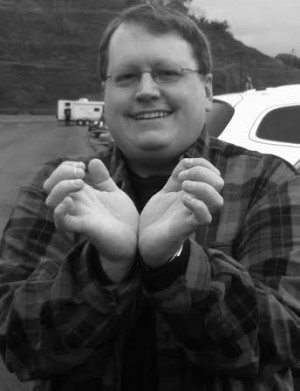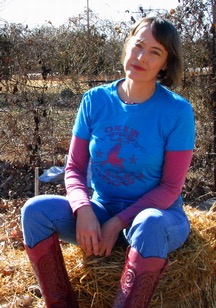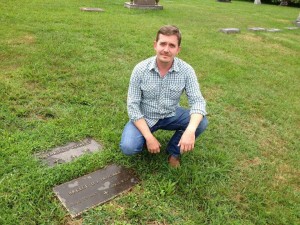It was Saturday night. The bar was full. Bishop didn’t like it. He didn’t like weekend drinkers. He sat alone at the corner of the counter, nursing a bottle of beer that had gone warm in his hand. A couple of times he’d been bumped by passing bodies on their way to the toilet, or the makeshift dance floor in front of the wailing honky band playing hard in the corner. Each brief contact brought a fresh grimace to his face.
The bartender was called Joe. He grinned at Bishop’s displeasure. “Maybe you should skip Saturdays.”
“Fuck em,” Bishop said. “I was here first.”
“I think you’re outnumbered.”
Bishop finished the beer. He slid the bottle along the bar. “Get me another.”
Joe grabbed a new one, popped the top and passed it over.
Bishop took it without thanks. Someone brushed him and his teeth rattled against the glass. He slammed the bottle down and clenched his fists. “Some motherfucker…”
“Leave it, Bishop,” Joe said. “It was an accident. No one’s hassling you.”
Bishop looked round. It was impossible to see who had jostled him. He glared at everyone then turned back to his drink.
“Calm down,” Joe said.
“Fuck you.”
“Calm down or I’ll cut you off.”
Bishop grumbled. He turned his back to Joe, watched the room. A girl caught his eye. A pale girl with black hair like a Biblical harlot. She wasn’t wearing much – a grey vest, some black shorts that hardly covered her ass, and some beat-up sneakers. She was dancing with some chinless fuck in a trucker cap. She danced with her ass. Bishop watched it. He took a drink, mesmerised by it. It made the blood pound in his dick, and any ass did that had his attention.
Below the trucker cap was a skinny guy. Bishop could take him, easy. Could break him in half. Bishop was big. His hands were like bear claws. They were the kind of fists that aimed to knock a man out with one punch. He clenched them, squeezed them tight. His hands itched. They were always itchy.
The band finished their song and Bishop finished his beer. He got up and made his way to the girl. She wasn’t dancing anymore, wasn’t shaking her ass. She stood upright and ran a hand back through her hair while the chinless guy spoke to her. As he got closer, Bishop saw that his top lip was sporting a weak moustache, the kind of smear that looked like he’d wiped his nose with a dirty hand.
Bishop sidled up next to the girl, paid the guy no mind. “I like the way you dance,” he said.
She looked at him, startled, but then she smiled.
“Uh, hey,” the guy said. What little jaw he had hung slack, showed off his teeth. They weren’t straight, and they weren’t white. “We were talkin here, buddy.”
Bishop shot him a glance. “Son,” he said. “Fuck off.”
The guy blinked, then Bishop stepped in front of him, pushed him out the scene. The band started playing again. The people around them jumped and cheered and pumped their fists.
“Why don’t we dance,” Bishop said.
The girl shrugged. “Sure.”
“I don’t dance too good.”
“That don’t bother me.” She took his hands, led him. She rubbed herself up against him. Bishop grinned. The girl’s eyes flashed scared at his smile, like she thought he was gonna try to eat her, but then she fell back into the music and avoided looking into his face. Bishop put his hands around her waist, so small he could almost hold her all the way round. He dug his fingers in and she cried out, the sound drowned by the band. She squirmed out of his grip and spun on him, but Bishop winked at her and ran his tongue along his teeth. She gave him a sideways glance, like he worried her.
Bishop held out his arms. “Come back to me, baby.”
Bishop felt a tap on his shoulder. He turned his head, narrowed his eyes. The chinless fuck had come back, and he’d brought another guy with him, just as ugly, just as chinless. They had to be brothers, though the new arrival was bigger than his counterpart in both height and width. Chinless opened his mouth. Bishop cut him off.
“Boy, I ain’t interested.”
Chinless stuttered, his big tough-man moment not playing out the way he’d planned. He looked at his brother for help. Bishop struck him in the side of the face and he went down. The brother lunged forward, tackled Bishop across a table, scattered bottles and glasses, spilling beers. If the band noticed the fight, they didn’t stop playing.
The brother was stronger than he’d expected, but Bishop wasn’t worried. He wrapped his mouth around a hand that had landed on his face and sunk his teeth in. The brother reared back and screamed, punched at Bishop with his free fist to get him off. Bishop felt his right eye close up. He released his grip and laughed, shoved the brother back then got a leg out from under him, used it to kick him square in the chest. The brother toppled over the table they’d crashed through, but he scrambled up to his feet the same time Bishop did.
They started throwing punches then. Neither of them bothered to cover up, they just wailed on each other, headshots and body-shots. A couple of Bishop’s blows missed – he kept aiming for the chin, the knockout shot, and found himself swinging short by a couple of inches. What little chin the motherfucker did have was set back about three inches more than a normal man’s. The brother didn’t make such mistakes. Bishop felt his nose burst, felt a tooth loosen at the back of his mouth, he tasted blood as it spilled down his throat.
Bishop had experience though, and he was heavier. Eventually he started wearing the brother down. Stopped going for the knockout blow and decided to bruise and bloody the son of a bitch instead. The brother went to a knee and spat out one mossy-looking tooth.
Then Bishop felt weight on his back – the original chinless was rejoining the party. He tried to wrap a skinny arm round Bishop’s neck, punched him ineffectually in the side of the head, but Bishop just reached back, grabbed a handful of his hair, and dragged him over his shoulder and slammed him hard to the ground next to his brother. He kicked the brother in the chest for good measure, knocked him down on his ass.
The band had finished a song. People were clapping, though it was unclear whether it was for the band or for the fight.
Joe was shouting. “Hey! Hey! That’s enough!” He looked pissed. His face was red and the veins popped in his neck. Probably he’d been shouting at them a while already, but Bishop’s mind had been on other things. “Get the fuck outta here, you’re done!” He motioned to the door as if Bishop could have held doubts about where exactly he wanted him to go, then turned to a couple of his waiters and pointed at the brothers. “Get them out, too.”
Bishop sidled up to the bar, wiped blood from his mouth with one almond-sized knuckle. He grinned. “How about one for the road, Joe?”
“You’ve had enough,” Joe said, but his voice was softer now and the red was fading from his face. “Go home. Sleep it off. You’re gonna hurt in the mornin.”
“Shit son, I hurt right now.”
“Get on home, else your lady’s liable to shoot you as you walk through the door.”
“Hell, she just might at that. One of these days, huh?”
“How about tonight you get home so early she don’t even wave the gun at you.”
“Naw, she’s gonna wave the gun. People have their rituals, Joe. I’ll see you tomorrow.”
Joe sucked his teeth. “Sure.”
Bishop turned, surveyed the bar. The girl was gone. Either she’d left or she was hiding from him. He spat to one side and probed the loose tooth with his tongue.
Outside, the brothers’ chinless were stood to one side, the bigger one holding the littler one up. Bishop gave them a nod. “Fellas.” He pulled out cigarettes, popped one in his mouth and lit it, offered them the pack. They each took a smoke and he lit them. “You boys have a good night?”
“I’ve had better,” the brother said. “And I’ve had worse.”
“I saw her first,” chinless said. “She was dancin with me.”
“And then she was dancin with me. Don’t let it eat you up, son. She ain’t worth it. Could be we all did ourselves a favour tonight, that’s how we gotta look at it.”
“How come?”
“Hell, son – pussy like that comes with a price tag.”
“She was a hooker?”
“Naw, but she had that look that some of them got. If it ain’t money they want from you, then it’s the fuckin marrow in your bones, believe me. They want the heart from your chest.”
“She was real pretty,” chinless said.
“She sure was,” the brother said.
“And they’s the serpents you gotta watch for the most. You ain’t got experience like me, boy. You don’t know. That girl woulda chewed you up, spat you out, then hung you to dry.”
They smoked together. The brothers listened to him talk, but he doubted they were taking in what he was saying. When he finished the cigarette he flicked the butt into the brother’s chest in a shower of sparks. “Catch you boys another time,” he said.
He walked home. It was about a mile, and the truck was in the parking lot, but he didn’t care. He shoved his hands deep in his jacket pockets and walked the quiet road, passing beneath the flickering streetlamps. The night air was cold in his cuts, made them feel like they were opening up all over again. To his left, beyond the grass, was swampland. Up ahead, in the road, picked out by the streetlamps’ yellow radius, he saw a lizard skitter across the road, it’s tongue flicking in and out of its mouth.
By the time he got back to the trailer park he felt almost sober. He reached his door and took the key from under the rock next to the porch, stepped inside to find Tilly with a handgun pointed at his chest. She had both hands wrapped around the handle and her legs were spread. Looked like she meant business.
“You fucked anyone, you son of a bitch?”
Bishop walked past her, ignored the gun. He let the door close behind him and went into the kitchen. “Maybe.”
She cocked the hammer. “Don’t you mess with me, you bastard! Tell me straight.”
Bishop took a beer from the fridge, took the top off and leaned back against the counter to drink it. He looked at his wife and raised an eyebrow.
“I mean it, Bishop!”
Bishop took another drink.
The trailer was in darkness, and he wondered how long Tilly had sat in wait for him, the gun weighing heavy in her hand while she deliberated whether or not to blast him as soon as he opened the door. When she spoke to him, he knew he was fine. She wasn’t gonna do it. The day he opened the door and she just pulled the trigger – well, he didn’t think that day would ever come. She wouldn’t do it. She couldn’t kill him.
She loved him too much. She’d leave before she shot him, and she’d never leave. He looked her up and down, and already he could see the resolve begin to falter in her face, in her grip. Her legs were bare below her nightdress, and he saw goosebumps there on her pale skin. Her dark hair was tied back and she wasn’t wearing any make up. Even in the dim light it made her look much younger. They’d been married ten years. She was still as pretty as when they’d met, but she just didn’t do it for him anymore. Credit where it was due, she’d never gotten fat like some wives had a tendency to do. He appreciated her for that.
“Put the gun down, Tilly,” he said. “You ain’t foolin nobody.”
“One day I’m gonna shoot you, Bishop.”
“You ain’t gonna kill me, woman.”
“I didn’t say I was gonna kill you. I said I was gonna shoot you. I been takin lessons.”
“That so?”
“I’m a hell of a shot.”
Bishop snorted. “A regular hawkeye, I reckon.”
“One day you’re gonna find out.”
“Yeah. Put the gun down, damn it.”
Tilly lowered the gun. She wiped the corner of her eye but she was casual about it, then she sniffed. “You been fighting?”
“Sure looks that way, huh?”
“You want me to get some ointment?”
“Nah, just leave it.”
“At least let me clean it up. There’s still blood on your pillows from the last time.”
“I’ll do it.”
“You say you will.”
“Why don’t you get on to bed?”
“You fuck anyone tonight, Bishop?”
“No.”
“You try?”
“Yeah.”
“Those girls you do fuck, you get it up for them all right?”
Bishop held beer in his mouth. He gave her a hard stare, then swallowed it.
“You never had a problem answering anything else.”
“Then yeah, I fuck them real easy.”
“So what’s your problem with me?”
“I walk through the door and you got a gun pointing in my face. Kill any man’s hard dick.”
“It wasn’t always that way.”
“Yeah, well, that kinda life and death shit will really get to a man.” He finished the beer, put the bottle to one side. “Come here.”
Tilly hesitated.
“Come on. Get on over here. Bring the gun.”
She went to him, her bare feet padding softly on the cracked linoleum.
Bishop took the gun from her, wrapped his other arm around her so she couldn’t get away, then pressed the gun to her chest. “How d’you like it? That fill you with a warm fuzzy feelin?”
“No.”
“That’s right, it don’t.” He circled the gun’s barrel on her chest. He ran it up to her neck, then along her jaw. He used his other hand to loosen the front of her nightdress, let it fall open. She didn’t try to get away. Her lips parted and he ran the gun over them. “You taste that?” he said.
“Yeah.”
“What’s that taste like?”
“Tastes like death.”
He ran the gun down her chest, between her breasts, down her stomach to her tightly curled pubic hair. She gasped in his ear. Bishop put his mouth to hers. “What’s that taste like?”
She licked her lips. “Like blood.”
He went behind her, bent her over the kitchen counter. Tilly breathed heavy. He spread her legs, stroked the insides of her thighs with the gun.
“Yes,” she said.
He slid the gun inside. She gasped hard. He saw her bite her lip. He worked it in and out, gripping the handle, his finger on the trigger.
“Blood and death,” he said, while he fucked her with the gun.
Tilly cried out, reached for something to hold, grabbed onto the tap with her right hand and the edge of the counter with her left. She started to scream and Bishop slowed. He pulled the gun out and put it down. It glistened. Tilly lay flat on the counter, still bent. Her hair had gotten loose and it covered her face. Her grip on the tap and the edge had loosened.
“You get hard?” she said.
“Naw.”
“Then what good is it?”
Bishop looked at her, but he couldn’t tell if she was looking back. A few strands of hair blew up and down with her breath, but other than that she didn’t move.
He went to the fridge and grabbed another beer. He popped the top and took a long drink, then left his wife where she was, made his way through the trailer, to bed.
He hadn’t gone five steps when he head the hammer cock behind him. He stopped and slumped his shoulders, tired of this bullshit. “For Christ’s sake, Tilly.” He turned. The bottle of beer exploded in his hand, foamy suds soaking his jacket and his boots. His ears were ringing but he was too stunned by what had happened to register the pain there. He shook his head then looked at his wife.
She held the gun in both hands. Her legs were spread. Her mouth was a tight line. The gun wasn’t pointed at his head. It wasn’t pointed at his chest. It was aimed much lower.
Bishop froze. He held up his hands and realised his right was bleeding where it had been cut by exploding glass. “Tilly –” he said. He took a step forward.
Tilly squeezed the trigger.
 Paul Heatley's stories have appeared online and in print at publications including Thuglit, Spelk, Near To The Knuckle, Horror Sleaze Trash, and Shotgun Honey, among others. His novellas The Motel Whore, The Vampire, and The Boy are available for Kindle from Amazon. He lives in the northeast of England.
Paul Heatley's stories have appeared online and in print at publications including Thuglit, Spelk, Near To The Knuckle, Horror Sleaze Trash, and Shotgun Honey, among others. His novellas The Motel Whore, The Vampire, and The Boy are available for Kindle from Amazon. He lives in the northeast of England.














